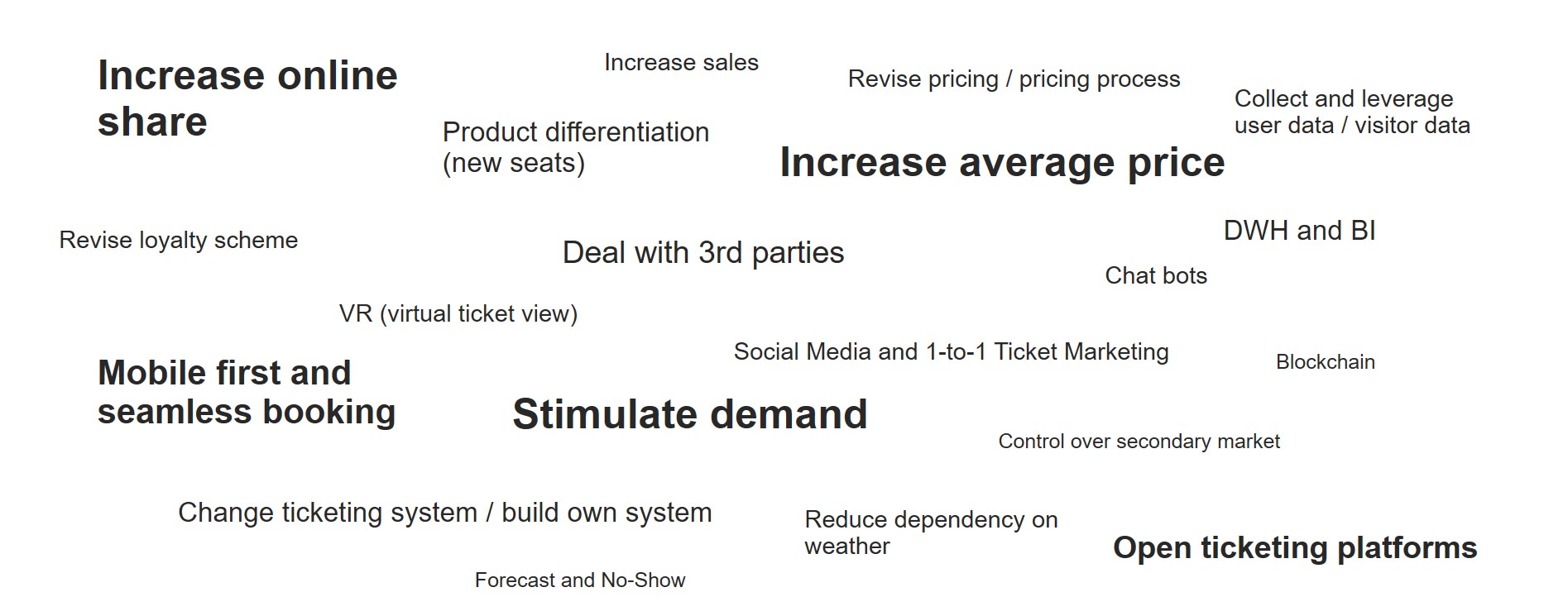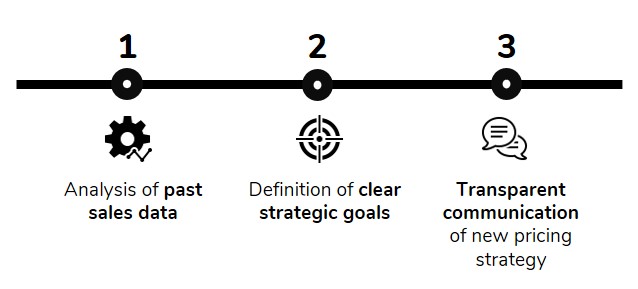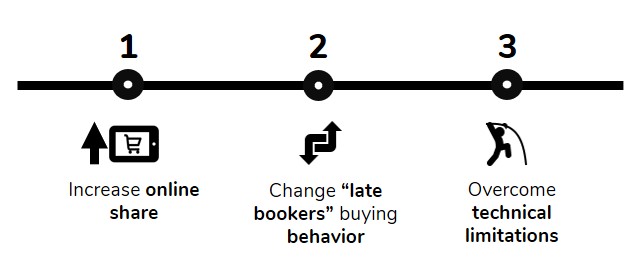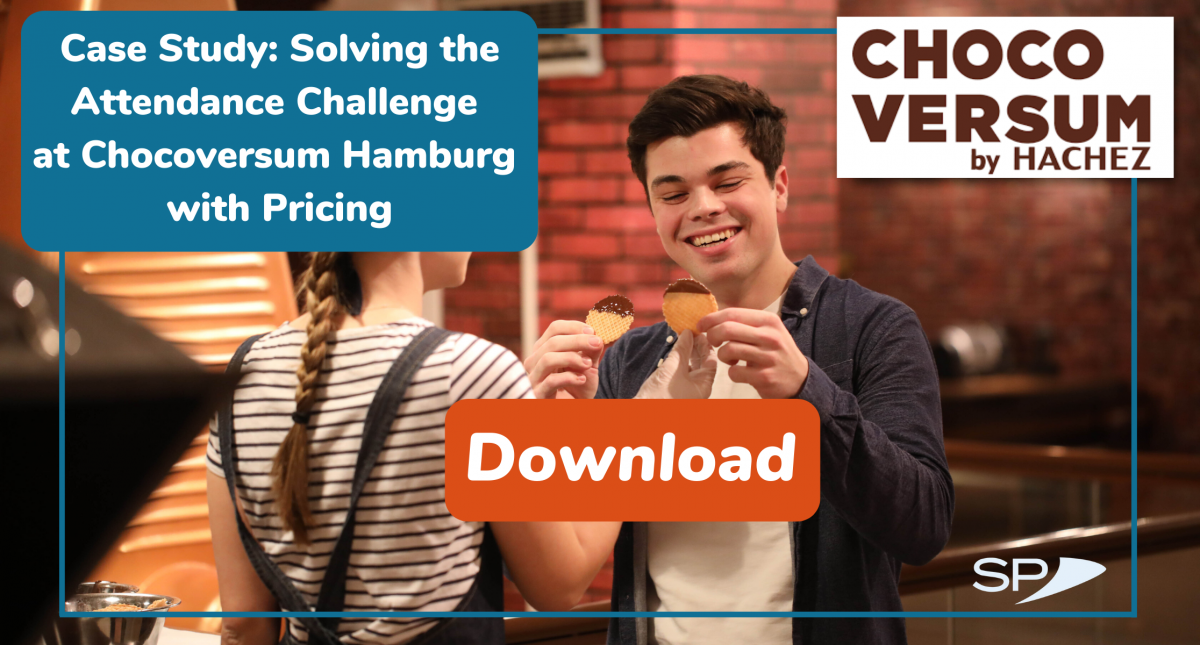Whether it’s a concert hall, theatre or opera house, finding the right ticket pricing strategy is no easy feat. In the last few years, there has been a rise of new pricing schemes in the live entertainment industry. More and more venues have started to challenge their current ticket pricing strategies in a quest to find the best approach for their business in today’s complex market.
One example is given by the Berliner Ensemble. For the inauguration of their new venue “Neues Haus” on September 20th, the theatre based in Germany’s capital city kicked-off a pay-what-you-want pricing initiative limited to seven theatre nights. The venue invited visitors to see a stage play and asked them to decide what to pay for the ticket based on how much they valued the experience.
Another example comes from Down Under. The Queensland Performing Arts Centre (QPAC) located in Brisbane, Australia, announced last October that it’s preparing to test a dynamic pricing strategy for its live entertainment tickets. This means that ticket prices will vary from one day to another, depending on demand.
The same choice has even been made by our German partner PALAZZO, a “gourmet theatre” which has been pricing the tickets for its popular dinner-show dynamically for almost one year now.
Clearly, there’s something in the air. The buzz around the topic of pricing is growing among live entertainment venues. And so is their willingness to rethink their current ticket pricing strategy.
But let’s see why.
The live entertainment industry is facing new ticketing challenges
Over the past few years, new ticketing challenges have emerged for concert halls, theatres and other live entertainment businesses.
According to our market observation, some of the most relevant ticketing topics in 2019/20 will be the following:

To discuss these and share expertise, we organized a workshop in Berlin focused on ticket pricing strategies.
The event brought together innovative minds from theatres, concert halls and opera houses eager to learn more about the topic of pricing and willing to exchange best practices and relevant breakthroughs.
During the workshop, we took a closer look at some of the main challenges ticketing managers in the live entertainment industry are facing.
Let’s break three of them down in detail:
1) Increase online share
At most live entertainment venues, only a small share of the ticket sales happen online. The majority still takes place directly at the box office or over the telephone. One of the main reasons for this is that many customers still require a great deal of assistance during the booking process.
However, to keep up with the digitalization trend, minimize queues at the box office and get a deeper understanding of target customers through data collection, it’s crucial to have a higher share of tickets purchased online.
2) Change “late bookers” buying behavior
Another challenge for live entertainment venues is changing the buying behavior of the so-called “late bookers”. It’s very common for a large segment of their audience to book tickets last minute.
This leads to a high level of uncertainty and difficulties in managing revenue for ticketing managers. Indeed, they need to decide how to best optimize the prices of the last available seats in order to minimize the financial risk of not having a full venue.
3) Overcome technical limitations
Workshop participants even mentioned the technical limitations of ticketing technologies as a current challenge.
One of the main discussion points was that the business requirements of the individual venues vary a lot. This means that ticketing systems are challenged to keep up with increasing customization requests.
Moreover, a general desire for more flexibility in the daily work life of a ticketing manager emerged — especially with regard to the management of ticketing dimensions (e.g. layouts, prices, discounts, coupons, etc.).
Pricing can be one key solution
Most noteworthy is that workshop attendees agreed that a new ticket pricing strategy could be one key solution for several of the challenges they’re currently facing.
This explains why more and more ticketing professionals in the live entertainment industry are starting to challenge their current ticket pricing strategy and are willing to explore new ways of implementing pricing.
3 pillars are needed for a good ticket pricing strategy
If you’re a ticketing professional currently rethinking your pricing strategy, it’s important you understand what is needed to develop a good one. We recommend three main pillars you can build on:

1) Analysis of past sales data for future revenue calculation, rather than gut feeling and mere assumptions.
2) Definition of clear strategic goals, such as increasing online share, optimizing ticket sales at off-peak times or rewarding early bookers.
3) Transparent communication of the new ticket pricing strategy, in order for customers to understand the rules of the game.
Key takeaways
Clearly, the mindset in the live entertainment industry is changing. Pricing is becoming a hot topic and it’s increasingly identified as a key measure to solve current business challenges and increase revenue.
Therefore, more and more industry professionals agree that innovating their current ticket pricing strategy is one of the ways to solve ticketing challenges. For this reason, they look forward to diving deeper into the topic.
As the future status and schemes of pricing continue to evolve, we’ll keep helping ticketing professionals stay ahead of the curve.



